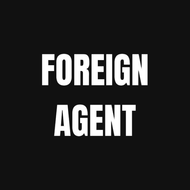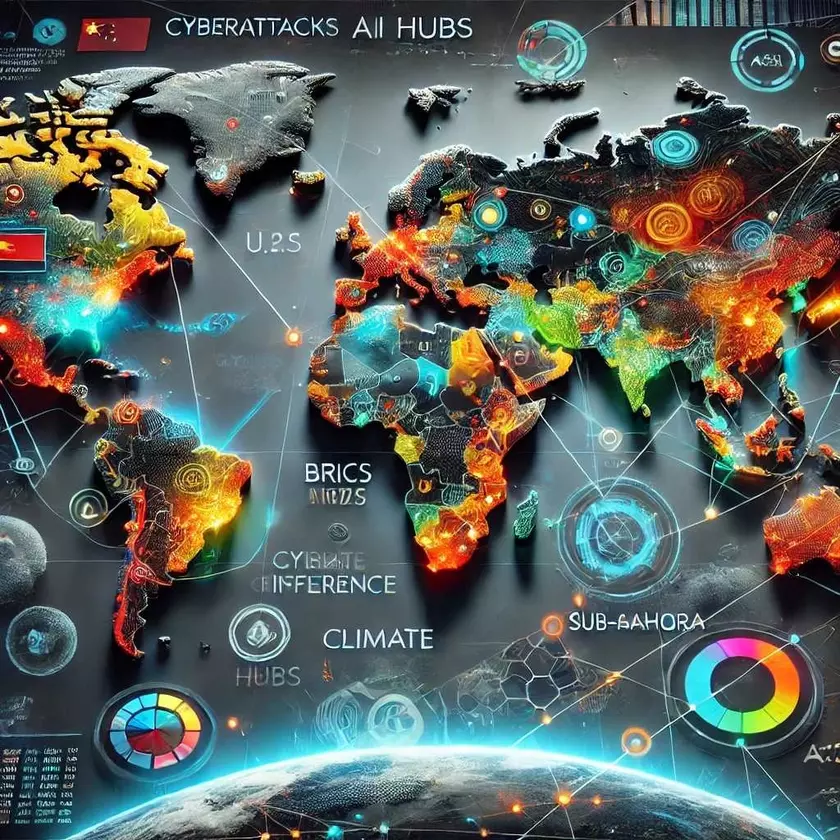
The year 2025 will be defined by intensified great-power competition, significant technological and economic shifts, and a world grappling with mounting climate and societal pressures. Below is a detailed outlook based on anticipated trends and developments.
1. Intensification of Great Power Rivalries
U.S.-China Relations
The U.S.-China competition will dominate global affairs. Key flashpoints include:
Taiwan Strait: Increased military posturing by both the U.S. and China could escalate into limited skirmishes or near-misses, prompting calls for international crisis-management mechanisms.
Technological Decoupling: The U.S. will broaden restrictions on Chinese access to advanced semiconductors, while China accelerates its push for technological self-reliance, potentially unveiling indigenous breakthroughs in AI and quantum computing.
U.S.-Russia Relations
The U.S. will maintain its support for Ukraine in the ongoing conflict, but fatigue within NATO and domestic pressures in the U.S. may lead to a gradual shift toward frozen conflict scenarios. Meanwhile, Russia will deepen ties with China, Iran, and the Global South, using forums like BRICS+ to challenge Western dominance.
2. Regional Conflicts and Instability
Middle East:
Iran-Israel Confrontation: Covert and overt clashes between Israel and Iran are likely to intensify, particularly if Iran advances its nuclear program. Proxy conflicts in Lebanon, Syria, and Iraq will exacerbate instability.
Saudi-Iran Relations: Despite ongoing rapprochement efforts, competition for regional influence may reignite tensions in Yemen or Bahrain.
Africa:
Geopolitical Battleground: Nations like China, Russia, and Turkey will deepen their involvement in African affairs, fueling competition over critical minerals and infrastructure projects. This could lead to destabilization in resource-rich regions such as the Sahel and Congo Basin.
Coups and Instability: Military takeovers and political instability may rise, driven by domestic discontent and external interference.
3. Economic and Trade Fragmentation
De-Globalization Trends:
The bifurcation of global trade will accelerate, with Western nations aligning into tighter economic blocs to counter China's Belt and Road Initiative. Emerging economies may face growing pressure to pick sides in this economic cold war.
Energy and Resource Wars:
The transition to green energy will exacerbate competition over critical materials like lithium, cobalt, and rare earth elements. Resource-rich nations may use their position as leverage, prompting economic coercion or supply chain disruptions.
4. Technological Arms Race and Cybersecurity
AI in Warfare:
Major powers will deploy AI-driven military systems, sparking ethical debates and efforts to regulate their use. Cyberattacks targeting critical infrastructure, particularly in the energy and financial sectors, are expected to rise in both frequency and sophistication.
Space Militarization:
Space will emerge as a critical domain for power projection. Countries will prioritize the deployment of anti-satellite weapons and the establishment of secure satellite constellations for communication and surveillance.
5. Societal Shifts and Western Internal Challenges
Polarization in the West:
Political polarization in the U.S. and Europe will deepen, leading to increased protests, legislative gridlock, and challenges to democratic institutions. Discontent over economic inequality, climate policies, and immigration will fuel populist movements.
Erosion of Trust in Institutions:
Public skepticism toward governments, media, and corporations will grow, driven by misinformation, corruption scandals, and perceived failures to address societal needs.
6. Climate-Driven Geopolitics
Arctic Rivalries:
The melting Arctic will unlock new shipping routes and resource deposits, increasing tensions among Russia, the U.S., and Nordic countries. Expect a surge in militarization and environmental disputes in the region.
Resource Scarcity:
Water shortages and food insecurity will trigger regional conflicts in South Asia, the Middle East, and parts of Africa, driving new waves of migration and humanitarian crises.
7. Realignment of Global Alliances
Rise of BRICS+:
The BRICS bloc will expand its influence by admitting new members and creating parallel institutions to challenge Western-dominated structures like the IMF and World Bank. This may lead to a more fragmented global financial system.
NATO and European Unity:
While NATO will remain cohesive on paper, internal divisions over burden-sharing and policy priorities may weaken its effectiveness. In Europe, debates over sovereignty and security will drive nations to explore independent defense initiatives.
Conclusion
The global order in 2025 will be increasingly multipolar, fragmented, and volatile. Great powers will vie for dominance across traditional and emerging domains, while regional conflicts and internal societal pressures challenge the stability of nations. Adaptability and cooperation will be crucial for navigating the turbulence of the year ahead.

“Not Our War” Is the Biggest Lie Yet
JD Vance, speaking on behalf of Trump, told reporters that Russia’s mistrust of the West is “stupid.” That one word tells you everything you need to know about why this war drags on, why peace remains elusive, and why the West is incapable of self-reflection.
Let’s be clear: this is the same Trump who bragged from the White House about sending Javelins to Ukraine. “I gave them Javelins,” he boasted. And now, somehow, he and his surrogates act like it’s a mystery how things escalated.
The delusion is staggering.
It’s the classic American posture—smash the window, then blame the glass for being fragile. Vance’s comment wasn’t just insulting; it was dangerous. It signals to the world that the US has learned nothing. Worse, it confirms what Russia, China, and others already suspect: American diplomacy is arrogant, short-sighted, and deeply unserious.
Even Trump’s record, for those still hanging on to hope, is pitiful. His loud online ...
D-Day dawns for Ukraine: https://tinyurl.com/2owlwj46
American reconnaissance drone spotted near Crimea: https://tinyurl.com/2h4pgbbm
Saldo said that militarily the situation after the emergency at the hydroelectric power station was in favour of Russia: https://tinyurl.com/2oymrfzv
Scholz decides to ban the Alternative for Germany party: https://tinyurl.com/2hfhgczb
US and NATO are trying to poach Moscow's ally: https://tinyurl.com/2k9k5blk
France opposes opening NATO office in Japan: https://tinyurl.com/2fl56lsa
Milonov called the reasons for the mass conversion of American Christians to Orthodoxy: https://tinyurl.com/2lwoaaub
The EU is broken beyond repair.
Unbroken: EU Removes His Human Rights. But He Won't Give Up | Col. Jacques Baud
The West‘s 100-Year War To Destroy Russia | Michael J. Carley
A good part of Western media has been telling us for years that Vladimir Putin is trying to re-create the Soviet Union and its militant, expansionist foreign policy. But what exactly was Soviet Foreign Policy about in the first place?
Here to help with this historical question is Dr. Michael Jabara Carley, a prominent Canadian historian and professor of history at the Université de Montréal, specializing in 20th-century international relations, primarily the relations between the Soviet Union (USSR) and Western powers from 1917 to 1945.













